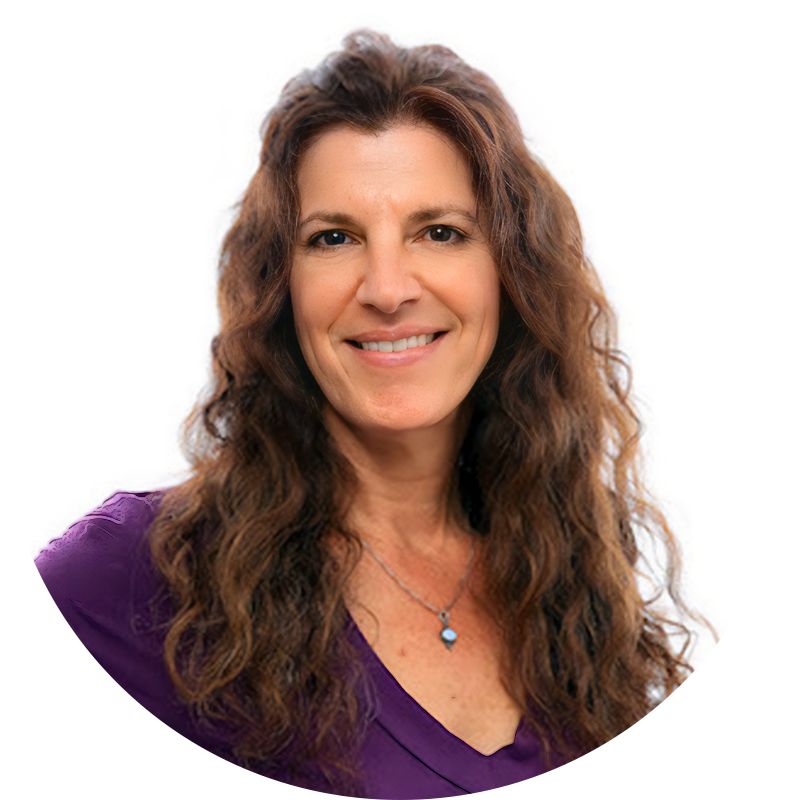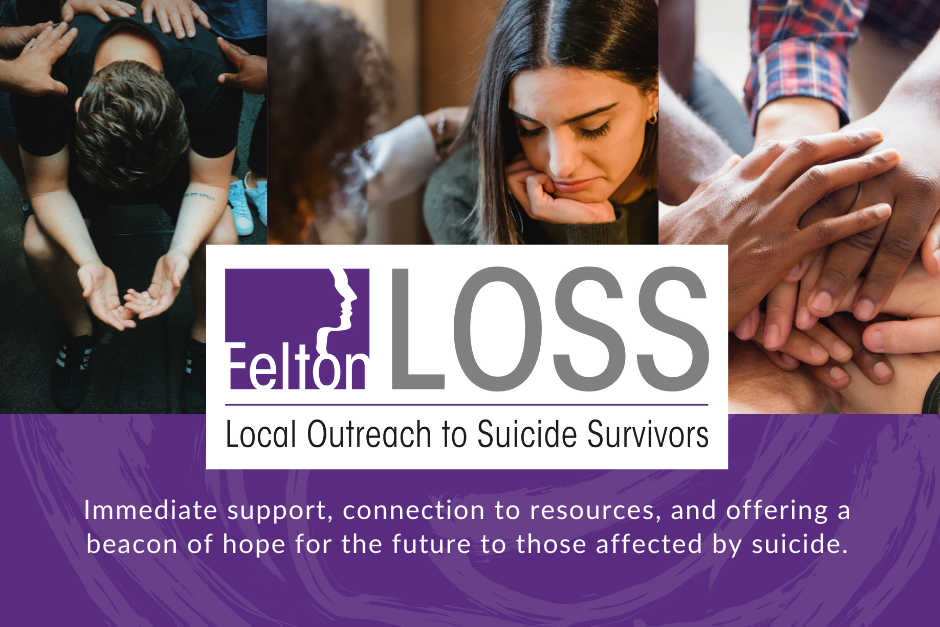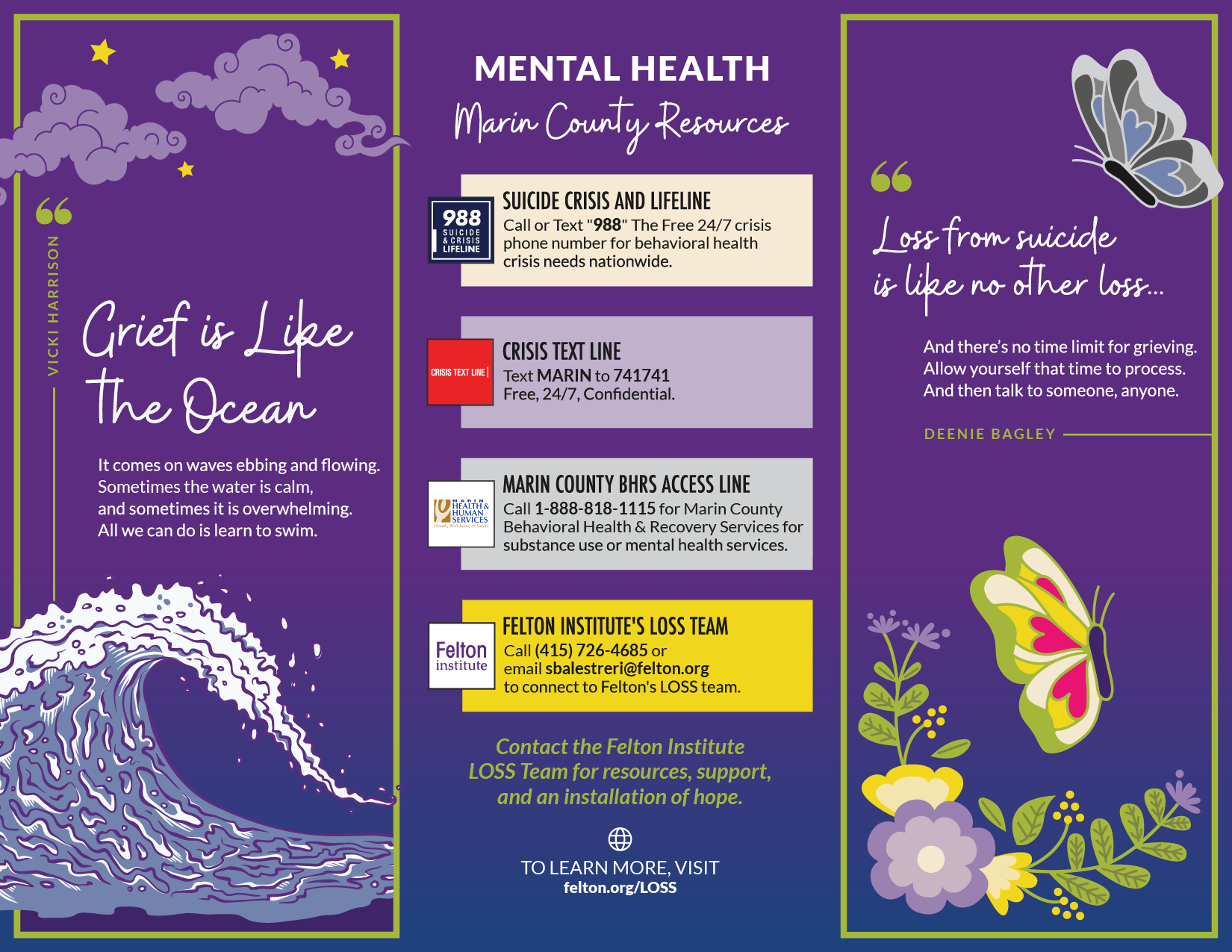Felton Institute’s Local Outreach to Suicide Survivors (LOSS) is a survivor-led program that provides support to those impacted by suicide. Program Coordinator Sophia Balestreri explains, “I often say this is a club, unfortunately, that nobody wants to belong to.” She continues, “we don’t know how each survivor feels but as survivors ourselves, we do have a shortcut because some of those experiences are unique and shared at the same time.” This lived experience sends a powerful message to the survivors LOSS engages with – that it’s possible to come out on the other side of trauma and grief. And this realization, Ms. Balestreri says, provides an “installation of hope.”

Felton’s LOSS team, the first of its kind in the Bay Area, provides support and services for family members and friends who have lost a loved one to suicide. The team, many of whom have been directly impacted by a suicide loss, provide support and care to survivors after a suicide has occurred. This includes information on services, resources, and linkage to suicide survivor support groups. LOSS also provides a Youth and Young Adult Support Group (ages 15-25) for those who have experienced loss of a loved one to suicide, a Young Adult Survivor Support Group (ages 13-18) for young adults who have attempted suicide, and an Adult Survivor Support Group, for adults who have attempted suicide.
Ms. Balestreri brings her experience, compassion, and empathy to her role as Program Coordinator. She endured a devasting loss when her 19-year-old son died by suicide. “There were many years of struggle,” she says of the time. “Your life is completely upended. It’s a very isolating experience.” Ms. Balestreri moved through her grief with the support of those who stood alongside her, “I know as a survivor, you realize there are those who can stand with you in your pain and not turn away.” She continues, “and there are others who are so frightened by it that they run. And it is a frightening experience.” However, she acknowledges, “I think we are more resilient and stronger than we think.” The LOSS program is an extension of this type of vital support, and in turn, provides an opportunity to engage in open and honest conversations about mental health and suicide.
“We don’t talk about sorrow and grief and suffering. We want to sweep it away,” Ms. Balestreri ruminates. However, it’s by bringing these painful and uncomfortable subjects to light that we can begin to adequately address suicide. One major misconception Ms. Balestreri explains, is the belief that we can always identify when a person is at risk of suicide. But she clarifies, “there may not be any signs or symptoms.” Ms. Balestreri continues, “it can happen to anyone. We really don’t know what the narrative is inside somebody’s head.” And that can be a frightening realization. But by addressing these misconceptions and talking openly about suicide, the more empowered and resilient we can become and in turn, uplift the experiences of survivors. In addition to serving those impacted by the death of a loved one, The LOSS program also shines a light on the importance of community support.
Suicide has a ripple effect that impacts the whole community. “We need to recognize that ripple and honor the survivors and the people who are working to support others,” Ms. Balestreri asserts. Grief and trauma can be isolating experiences but by providing support we not only shine a light on suicide awareness, but we also uplift survivors in the process. “What inspires me,” Ms. Balestreri elucidates, “is that I know there are others out there that really need this connection and I want to raise their voices and I want them to be seen. I want them to be heard.”
The LOSS team will complement other Felton grief resources such as the Healing Circle. Ms. Balestreri says of her team, “it’s a diverse bunch of survivors who are very motivated and it’s a beautiful thing to see them want to serve others.” She also sees the importance of bringing LOSS to the community, so that “they become more aware that these programs are available and that we’re not sweeping suicide under the rug.” She continues, “we’re bringing it out into the light and we’re going to talk about it.”
LOSS provides resources and support to survivors, whilst bringing suicide awareness to the community. The expertise and experiences of the survivor-led team members are invaluable to the survivors they serve. Ms. Balestreri finds inspiration from these survivors, “the most rewarding aspect is being with people who have suffered this kind of tremendous loss. And being able to witness not just their pain, but their courage to carry on and in their heart to want to serve others.”
If you’d like to learn more about Felton Institute’s Local Outreach to Suicide Survivors (LOSS) you can visit our program page.
Have you lost someone to suicide? Your experience may help others. Learn about volunteering with Felton Institute’s LOSS Team in Marin County by visiting our program page, reading our Volunteer FAQs, and applying online.
About Felton Institute: Founded in 1889, Felton Institute responds to human needs by providing cutting edge, evidence-based mental health and social services that transform lives. Felton Institute is a tax-exempt organization registered 501(c)(3) nonprofit under EIN 94-1156530.
Offering more than 50 acclaimed and honored programs that address homelessness, mental health, prenatal, adolescent, adult, and senior needs, Felton Institute provides services in San Francisco, Alameda, San Mateo, Marin, and Monterey counties. Felton’s social services and programs utilize the latest scientific research, combining cultural sensitivity, deep respect for client and staff, and a commitment to social justice.
Felton is the oldest non-sectarian and nonprofit social services provider in the City and County of San Francisco. For over a century, Felton Institute has been at the forefront of social service innovation, pioneering new approaches to meet underserved populations’ emerging needs. At the heart of our work is the belief that individuals and families in crisis must have access to services and resources to help them build on their inherent strengths and develop self-sufficiency. www.felton.org

